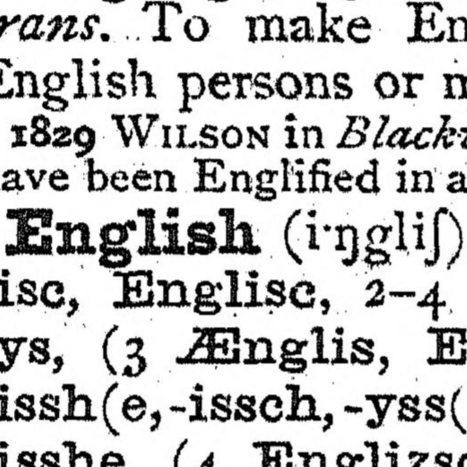My Microsoft account at work made me re-think this because it is pushing me to add more commas that I usually do.
I’m of two minds here. On one hand, punctuation is for clarity. If a sentence is clear without additional hyphens or commas, you could argue that they are not needed. For example:
I want ice cream too. (Acceptable in informal writing.)
I want ice cream, too. (Expected in formal writing.)
I want to eat, mom. (Always a good idea.) I want to eat mom. (Or the police could be involved.)
Or with hyphens when putting two adjectives before a noun, as with: “a well-known author” or “a high-speed chase.” With both of these, leaving out the hyphen would not change the meaning or cause confusion.
However, with “high-school students” vs “high school students” the police could get involved again over omitting the hyphen.
I tend toward leaving it out unless it improves clarity or changes meaning.
Now for the Oxford comma. Have we all seen the memes?
However you feel about strippers, is would probably be less confusing if “the strippers, Kennedy, and Stalin” suddenly arrived, than it would be if “the strippers, Kennedy and Stalin” arrived.
Not using the Oxford comma can make the phrase ambiguous, but when it doesn’t become ambiguous, as with, “Get me the carrots, potatoes and celery”, we can really leave it out without problems.
I go back and forth on these. Even the most careful writers and editors can fail to see the ambiguity in their phrases, so choosing to always include the punctuation is a good way to go. Then again, if you feel confident and want to remove the clutter, I can respect that too. If you have a style guide you must follow, do that, if not, then stay consistent with whatever you choose.
Thoughts? Or more fun examples are welcome.
really? i always feel like i overuse semicolons, and i’m not sure i’d put one there
Mary, Mark, and Joanna
Mary, Mark; and Joanna
Mary; and Joanna
only the first looks correct at first glance to me
Tbh, I have no idea how there’s even a debate on this. Always Oxford comma.
I just say the sentence aloud - if there’s a small pause in my speech, in goes a comma.
I much prefer using the Oxford comma because it does eliminate ambiguity in most cases. It also feels more natural to read a list that includes one. Without the final comma, I don’t have the reminder to pause in my reading cadence, and I often find it a bit jarring. It doesn’t impede understanding, for me, except where the phrasing is already ambiguous. It’s just mildly uncomfortable.
I agree. Oxford comma is absolutely necessary to improve flow.
i’m generally pro oxford comma, but i do want to point out it’s not a “free” reduction of ambiguity - it can sometimes cause a list look like a set of parenthetical commas. bad example, but i can’t think of anything better: “the flowers came in teal, a shade of blue, and orange”. do I think teal is a shade of blue? or a separate member of the list?
(not that “the flowers came in teal, a shade of blue and orange” is any better in this instance
I see what you’re saying. Putting my editorial hat on, I’d typically recommend restructuring a sentence like the one in your example. It’s ambiguous regardless of punctuation.
yeah, in general i’d say you’re right. but in cases where it’s not possible (such as transcribing speech) it’s a plausible issue
the flowers came in teal, [as well as] a shade of blue, and orange.
My second most overused punctuation (after commas) is parentheses.
The flowers came in teal (a shade of blue) and orange.
that doesn’t prevent a list looking like it’s parenthetical, even when it’s not though
or, for that matter, ambiguity between talking to someone and about someone:
Mark:
Who’s coming to the party?
Stephen:
Mary, Mark, and Joanna.
is stephen patronisingly addressing mark, or talking about another mark that i know?
If Stephen was addressing Mark, that second comma would be a semi-colon.
When I read this, I get all the differences you make except the one which the Oxford comma. I don’t get why or how it changes anything in the sentence. I read it the same way I read the previous on, only that I am a tad bit irritated by the Oxford comma because it was ingrained to me in primary school to not use commas before an ‘and’. But I am also not native English speaking, might have an effect on it.
This may help.
The way you and I both learned leaves the last two open to ambiguity. Are they part of a list, or do they define the previous item in the list? The Oxford comma solves that.
I see. My native language is French and there is no oxford comma. It seems that there is no choice to rewrite the sentence to avoid misunderstanding in French for one of the option.
I didn’t know that.
A vote for the Oxford comma from me too.
Apart from anything else, as an occasional copy-editor, I find it much easier to apply the Oxford comma rule if it’s in the style guide than to spot the occasions where it’s needed to remove ambiguity when the general rule is no Oxford comma.
I’m generally pro Oxford comma, but i watched my cousins fight about it when labeling the slideshow for their dads funeral. Now i let that guide me.
T - Take out that comma!
J- No! It’s correct!
T- Yeah, but it looks stupid!
This is probably the best guide to comma usage I’ve ever seen, no sarcasm.
Yup. I sympathize with both of them. The Oxford comma can make American’s cringe. In my own writing, if I am positive there will be no ambiguity, or don’t have time to think about it, I leave it out.




